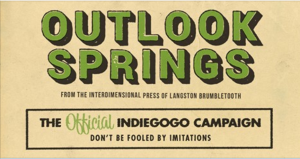I went to see Margaret Atwood at the Music Hall is Portsmouth last night (which is a lovely theatre, by the way.) This is the second time I’ve seen her, the previous time was at a Nelson Institute thing in Madison. There was a much longer Q&A section this time, with a sit-down interview.

Margaret reading.
I noticed a particular quirk. When she explains something that she feels is fairly self-evident, she adds “Is it not?” or a variation of that as punctuation to her statement. It’s charming and funny and much classier than saying, “Duh!”

Margaret being interviewed.
Her novel, Blind Assassin, is one of my favorite books and really solidified for me what kind of literature I want to write. It’s often my go-to book when I’m trying to turn literary fiction fans onto scifi or vice-versa.
I got to meet her at the VIP thing afterward and I told her the story about how she ended up in my MFA application essay, of which the following is an excerpt:
I saw Margaret Atwood speak a couple years ago and someone asked her why she writes the kinds of stories she wrote. She said that she thought that writers write what they are (secretly, or not-so-secretly) afraid of. That illuminated something in my own writing and most of the writing that I love. I love trying to recreate complicated mental states in my readers, like the terror of being unable to trust your own mind. I love atypical neurologies, I love unreliable narrators. I love normal people lovingly rendered, faults and all, thrust into outrageous circumstances. One of Vonnegut’s rules of writing is that you must make awful things happen to your characters in order that the reader can see what they are made of. Between Vonnegut’s axiom and Atwood’s insight, the project of my stories finally made sense, the arc of my relationship to writing rendered visible.
Atwood was pleasant and adorable, but I could tell she was much interested in eating the pastry in front of her than in my story. And that’s okay, those were some damned fine pastries.
 The cover I designed for J.D. Salinger and the Nazis was a selection for The Association of University Presses Book, Jacket, & Journal Show. I am now an award-winning book designer. Which is now hilarious because I just got my first kill-fee for a failed book design. You didn’t have to do that, Universe, I wasn’t getting a big head about my design work.
The cover I designed for J.D. Salinger and the Nazis was a selection for The Association of University Presses Book, Jacket, & Journal Show. I am now an award-winning book designer. Which is now hilarious because I just got my first kill-fee for a failed book design. You didn’t have to do that, Universe, I wasn’t getting a big head about my design work.




